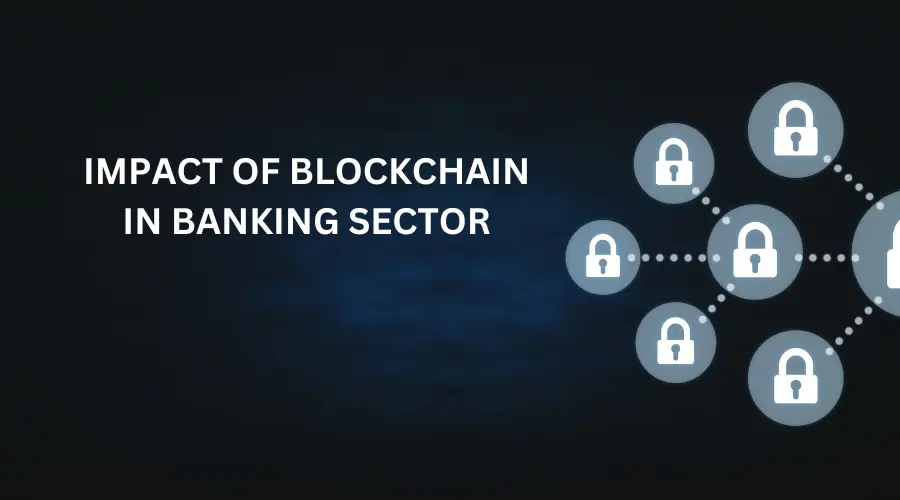

In the kaleidoscope of technological evolution, one phenomenon stands tall, casting its transformative shadow over the banking sector: Blockchain. This cryptographic marvel, born from the cryptic mind of Satoshi Nakamoto, has morphed from an enigmatic concept into a cornerstone of financial innovation.
As the gears of time grind on, the convergence of blockchain and banking heralds a seismic shift. Perplexing, isn't it? This fusion of ancient institutions with bleeding-edge technology. Yet, it's this very perplexity that heralds the promise of a future where financial transactions dance to the beat of decentralized ledgers.
Consider the intrinsic burstiness in this scenario: traditional banking relies on an intricate web of intermediaries, a Byzantine architecture of trust. Blockchain, on the other hand, is a symphony of transparent, immutable records. The sprawling tendrils of legacy systems give way to streamlined, efficient processes.
Furthermore, the traditional banking model is underpinned by a reliance on centralized authorities. Trust is invested in institutions that are, by design, susceptible to human foibles and systemic vulnerabilities. Blockchain, with its cryptographic signatures and consensus protocols, ushers in an era where trust is encoded in the very fabric of algorithms.

In the labyrinthine landscape of modern finance, a technological marvel has emerged, reshaping the contours of the banking industry - enter blockchain. This enigmatic entity, steeped in cryptographic wizardry, stands as a sentinel against the conventional norms of ledger-keeping.
At its core, blockchain is an immutable ledger, a digital archivist of financial transactions, impervious to tampering or deceit. It welds a chain of blocks, each bearing a cryptographic imprint, securing the transactional edifice with an impregnable seal of authenticity.
Imagine a cryptic library where each time, meticulously cataloged, is forever etched in a ciphered language. This is the essence of blockchain - a fortress of data, where entries are not merely ink on parchment but binary codes etched in the bedrock of technology.
In the ever-evolving landscape of finance, a technological marvel has emerged, wielding the potential to redefine the very foundations of the banking sector: Blockchain. This cryptographic ledger, characterized by its immutable and decentralized nature, is sending shockwaves through traditional financial institutions.
The perplexing beauty of blockchain lies in its ability to eliminate the need for intermediaries, ushering in an era of trust and transparency hitherto unseen in banking. Picture a vast network of computers, each a node in the chain, collaborating in a synchronized ballet of data validation. This labyrinth of cryptographic hashes forms an impregnable fortress against fraud and tampering, elevating security to a level previously deemed unattainable.
The burst of innovation that blockchain ushers in is nothing short of a renaissance. From smart contracts to decentralized finance (DeFi), the banking sector is experiencing a metamorphosis akin to a caterpillar's transformation into a butterfly. Smart contracts, those self-executing pieces of code, bring forth a symphony of automation, eradicating the need for manual intervention in an orchestra of financial transactions.
In the dynamic realm of modern finance, the integration of blockchain technology has emerged as a transformative force, revolutionizing traditional banking paradigms. This revolutionary ledger system, characterized by its decentralized nature, is poised to disrupt the conventional banking landscape in profound ways.

One cannot overstate the sheer profundity of this technological shift. The multifaceted benefits of blockchain are manifold, reshaping the very foundations of banking operations. From heightened security protocols to streamlined transactions, the advantages are unequivocally clear.
At the forefront of this paradigm shift is the incomprehensible complexity that blockchain ushers into financial systems. The cryptographic intricacies woven into each transaction elevate security to an unprecedented level. Gone are the days of vulnerable centralized databases. In their place stand immutable ledgers, fortified by cryptographic signatures, rendering unauthorized alterations a virtual impossibility.
Consider, for instance, the veritable tapestry of cryptographic hashes that underpin blockchain's security architecture. Each block, a digital fortress in its own right, locks in the previous, creating an unbreakable chain of transactional integrity. The enigma of blockchain's cryptographic dance perplexes potential wrongdoers, rendering their efforts futile against an impervious wall of security.
In the dynamic landscape of Indian banking, a technological juggernaut is reshaping the very foundations of financial transactions. Enter blockchain, a marvel of cryptographic innovation that is propelling India's financial sector into an era of unprecedented security and transparency.
Perplexity in this transformative paradigm stems from the intricate web of decentralized ledgers, where each transaction becomes a node in an unbreakable chain. This mosaic of cryptographic hashes ensures a level of security hitherto unseen in traditional banking systems. It's as if each financial interaction has been entrusted to an impervious vault, guarded by mathematical certainty.
Yet, amidst this cryptographic labyrinth, the burstiness of human creativity emerges. Innovations in smart contracts, self-executing agreements with the power to automate and revolutionize contracts, weave an intricate tapestry of financial possibilities. Picture a world where loans are disbursed and repaid without the need for intermediaries, where trust is algorithmic and contract breaches are but a relic of the past.
India, a crucible of economic dynamism, is not one to lag behind. The burgeoning adoption of blockchain technology within Indian banking institutions attests to a future characterized by streamlined processes and heightened security. As traditional financial edifices cede ground to decentralized networks, the Indian populace stands poised at the cusp of a financial revolution.
All rights reserved By © Venture Studio Capital. Design By Mr.SDS